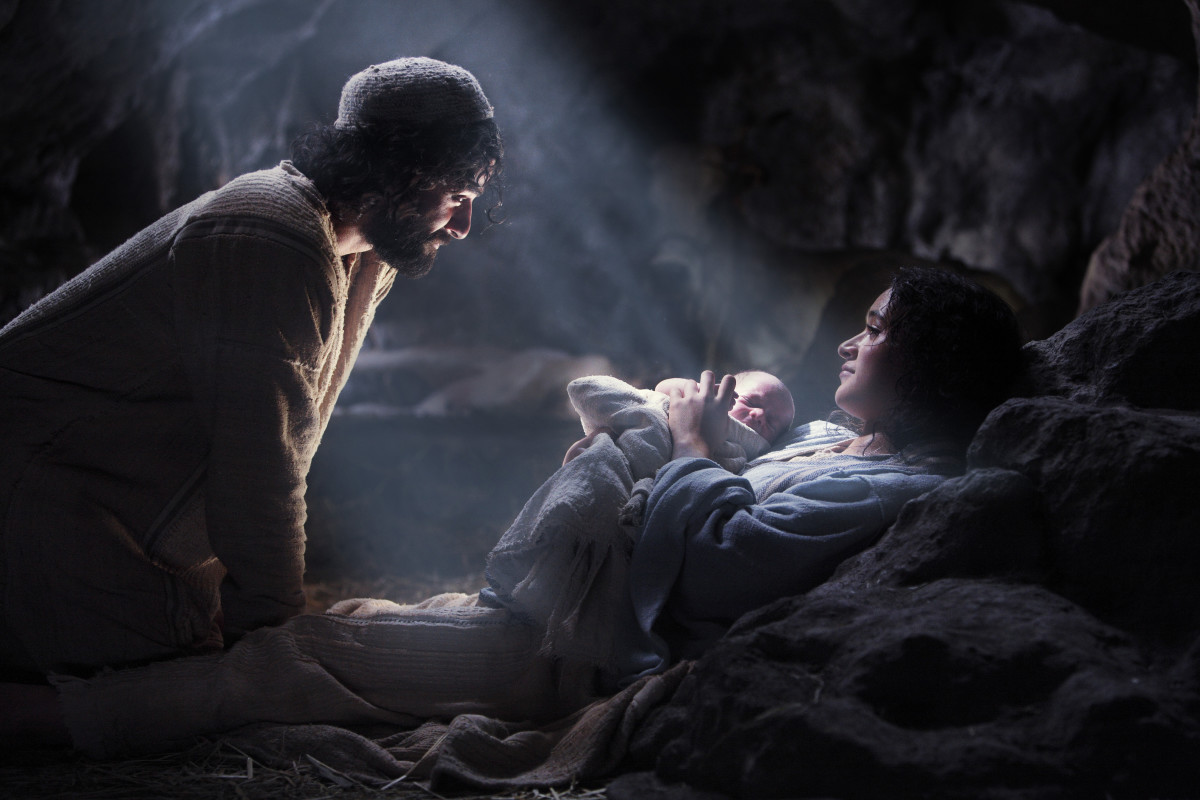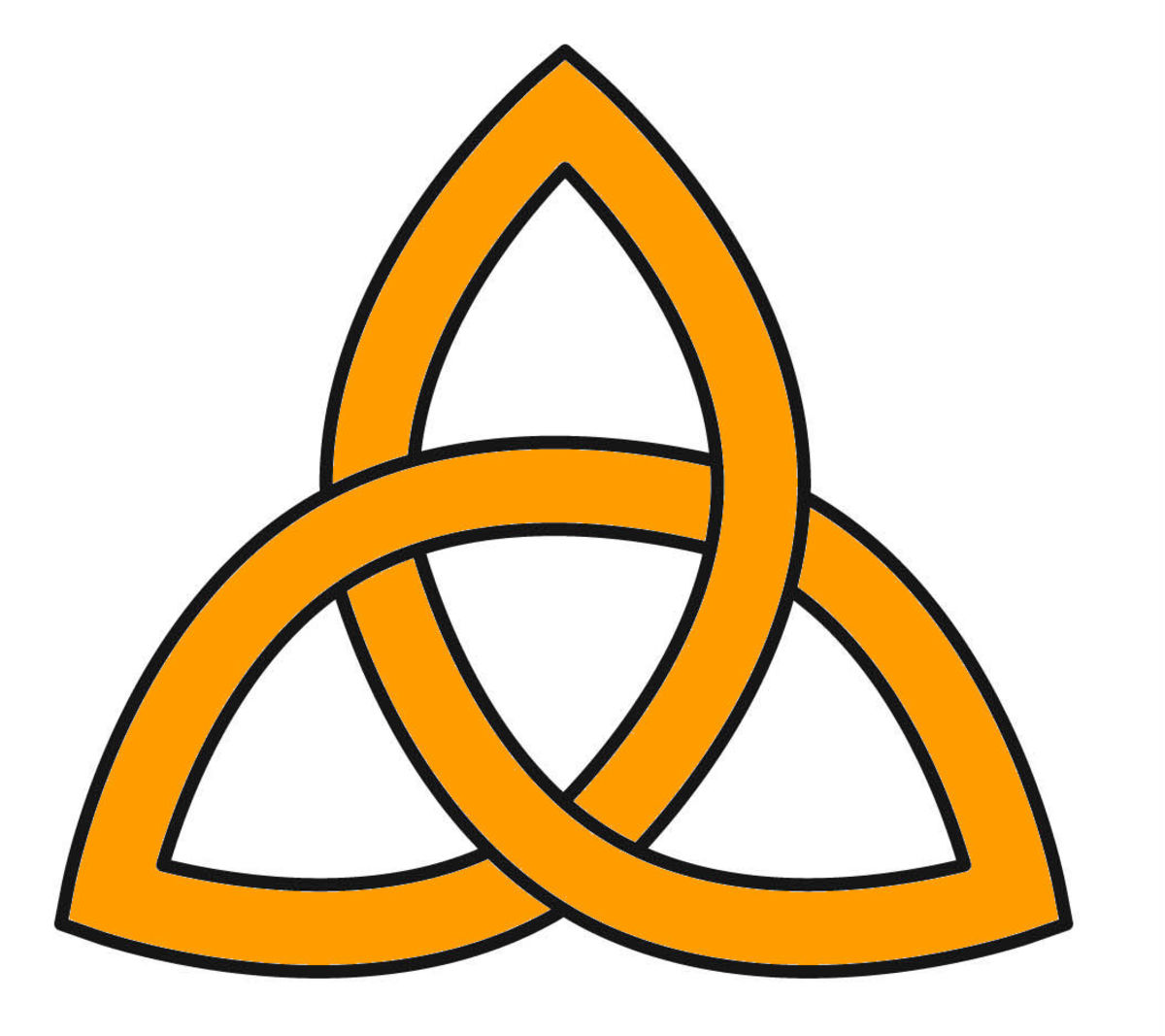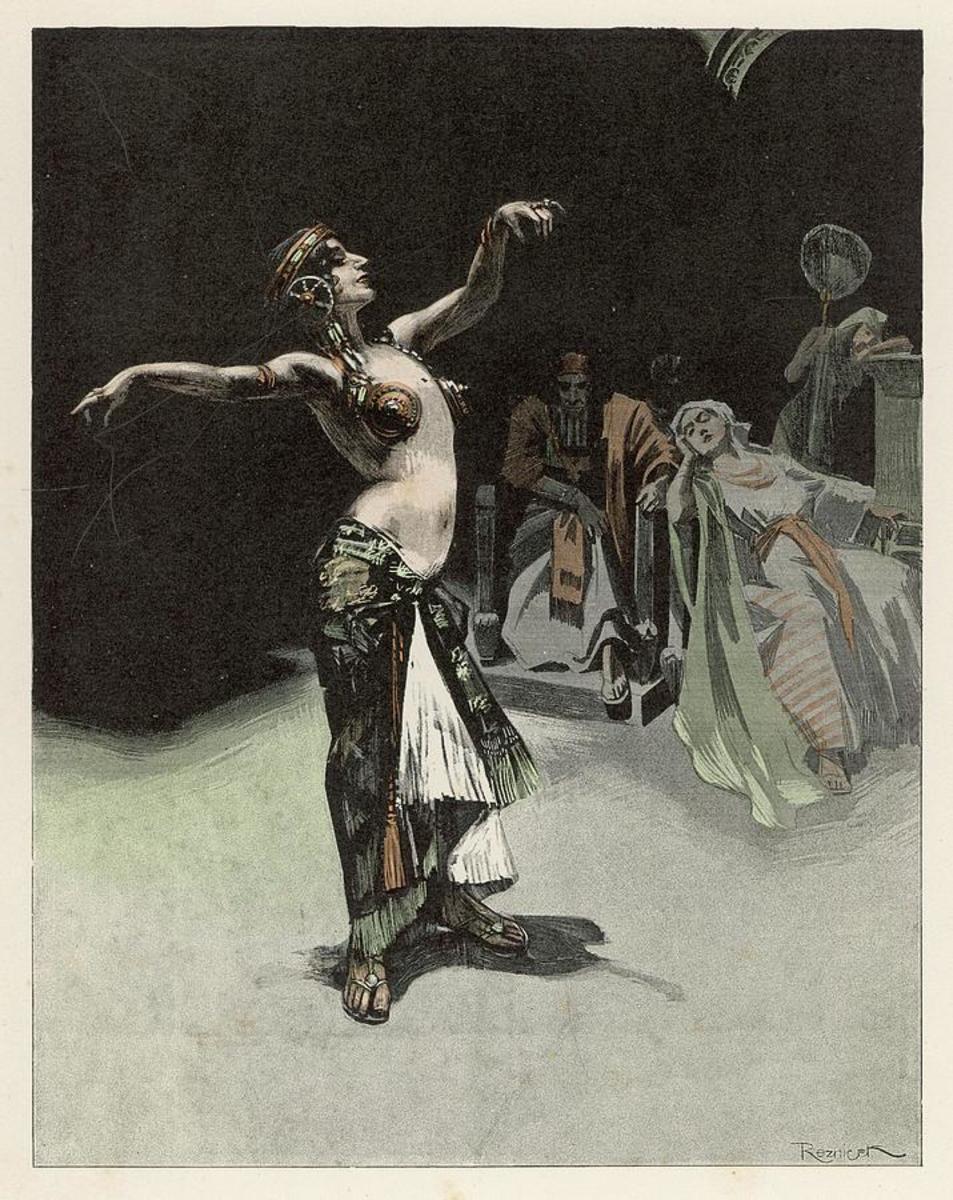The Virgin Birth

The Virgin Birth
I want to point out to you perhaps one of the most revealing and blatant contradictions of the Bible. It has to do with the lineage of Jesus. Matthew must have felt that it was important for the integrity of the prophecies of old, that Jesus be born from the house of David. This text chronicles that ascent, but it is flawed and contradictory on at least one fundamental level. Let's read it and you will see what I'm talking about.
MAT 1:1 The book of the generation of Jesus Christ, the son of David, the son of Abraham.
From here to 1:15 we are told exactly who begot who. I shall skip that part, as it is of no consequence to this investigation.
MAT 1:15 And Eliud begat Eleazar; and Eleazar begat Matthan; and Matthan begat Jacob;
MAT 1:16 And Jacob begat Joseph the husband of Mary, of whom was born Jesus, who is called Christ.
Do you notice something odd here? Perhaps not because this is the story you know. But perhaps you have missed an interesting point. First of all, Mary's lineage is not mentioned anywhere in the Bible. Contrary to the belief of some, woman's lineage was considered important in certain cases. The story of "Ruth" is just one case in point. Though many women and their lineage are mentioned and chronicled, Mary's is not. Surely the mother of Jesus should be from David's stock? It is said that she was the cousin of John the Baptist's mother and that her lineage was of Aaron. If they were cousins would she not also be of the house of Aaron?
But there is something else. Lets read on.
MAT 1:17 So all the generations from Abraham to David are fourteen generations; and from David until the carrying away into Babylon are fourteen generations; and from the carrying away into Babylon unto Christ are fourteen generations.
Matthew, in case there was any doubt, traces the lineage of Jesus from Abraham to Joseph the "Husband" of Mary. This is very important to understand. The lineage is not that of Mary, but that of Joseph that Jesus is supposedly related to. Now let's read the next line, shall we?
MAT 1:18 Now the birth of Jesus Christ was on this wise: When as his mother Mary was espoused to Joseph, before they came together, she was found with child of the Holy Ghost.
We are told here that Mary was with child before they came together. Well of course! This is a virgin birth, isn't it? In the next line we see that Joseph is not happy with the news; which suggests he is very aware that this is not his child.
MAT 1:19 Then Joseph her husband, being a just man, and not willing to make her a publick example, was minded to put her away privily.
MAT 1:20 But while he thought on these things, behold, the angel of the LORD appeared unto him in a dream, saying, Joseph, thou son of David, fear not to take unto thee Mary thy wife: for that which is conceived in her is of the Holy Ghost.
And there you have it. The lineage from David to Jesus is not valid in light of a virgin birth. Had Mary been the lineage of David, that would have solved this problem, but Matthew clearly states that the line is from David to Joseph, and then tells us Jesus's father is not Joseph. This is not "The book of the generation of Jesus Christ, the son of David, the son of Abraham."
This is truly a spectacular hole in the Christian myth. You could drive a truck through it. Was Matthew just so naive that he didn't see his error? Could Jesus really have been the illegitimate son of Joseph? Could it be that to cover up the pregnancy before marriage, they decided to fulfill the Prophesies themselves by creating a Jesus the Christ, after they discovered they had a son? There are so many variations on this theme that we shall likely never know the real truth.
The important reason for Jesus to be born from the house of David is that all the prophesies of the OT tell us the messiah is to born from the house of David. What does Luke say?
Luke 3:23 "And Jesus himself began to be about thirty years of age, being the son of Joseph, which was the son of Heli."
So we have a problem here. Who was Joseph’s father? Heli or Jacob?
The Protestants consider Heli to be the father of Mary, which would make Joseph a son in law of Heli, not his natural born son, linking Jesus lineage with Mary and not with Joseph as is suggested by Matthew. This makes sense, as it would then make Mary a descendant of one David’s sons.
Good enough for the Protestants. Still this idea did not come into vogue until the 15th century with first hint of it in the 8th century. And while Luke was a follower of Paul and never met Jesus it is hard to believe this is what he meant.
In fact, the whole concept of one Jesus is brought in to question by many scholars. I include these paragraphs by Earl Doherty as an example. His work "The Conspiracy of silence" documents the dual nature of the New Testament and it explains many of the contradictions we see in the first century writings of the apostles; as well as their lack of interest in the earthly life of the Jesus they purport to follow.
Many Scholars now believe that the historical writings about the man, Jesus, were brought about by a sect who produced a document called Q. This is the short form for the German word "Quelle" which means "Source". It contains many saying that are attributed to Jesus himself, though many of them are not included in the Bible.
The Q precedes the gospels of the New Testament and is widely accepted as the common source used by Matthew and Luke for the material they do not share with Mark.
Doherty writes:
"The most telling feature of the Q Jesus has proven to be the most perplexing, for he seems to bear no relationship to Paul's Jesus! Scholars continue to dance around the fact that Q contains no concept of a suffering Jesus, a divinity who has undergone death and resurrection as a redeeming act. Q can make the killing of the prophets a central theme (e.g. Luke 11:49-51) and yet never refer to Jesus' own crucifixion!
Its parables contain no hint of the murder of the Son of God. About the resurrection, Q breathes not a whisper. Jesus makes no prophecies of his own death and rising, as he does in other parts of the Gospels.
Note that in a Q passage in Luke 17, the evangelist has to insert into Jesus' mouth a prophecy of his own death (verse 25); it is not in Matthew's use of the same passage (24:23f).
Most startling of all, the Jesus of Q has no obvious significance for salvation! Apart from the benefits accruing from the teachings themselves, scholars admit that there is no soteriology in Q, certainly nothing about an atoning death for sin. The "Son who knows the Father" (Luke 10:22, a late saying recast from an earlier Wisdom saying) functions as a mediator of God's revelation--simply personifying what the Q community itself does. (Q's offshoot, the Gospel of Thomas, is similarly devoid of any reference to Jesus' death and resurrection.)”
It seems to also odd that Ignatius has to write a letter in 114 AD that stresses to the churches of the time that the virgin birth is true and that they must believe it. This suggests that up until that time it was not widely accepted as fact.
Out of twelve witnesses to Jesus minestry we are to believe that only three of them wrote about Jesus; John Matthew and Thomas? Again, Thomas’s writings are the earliest known, and yet he doesn’t mention Jesus death or the works he did. He just lists sayings like Q did. Mark, like Luke, like Paul, never even met Jesus. But he doesn't even make it in to the bible.
The problem is that no record of Jesus death exists. Rome was meticulous at keeping records. Where are they? Josephus seems to write about Jesus when he tells us of a Jewish sect led by James the Just, he calls him the brother of Jesus. He supposedly also writes about the crucifixion but that passage is in question with most scholars admitting it was probably an add on.
Is it possible that there are two Jesus figures? One a real man who was born flesh and blood and as the Muslims say, lived to a ripe old age, and another one who who’s murder and resurrection was constructed by Paul who saw Jesus as a figure who did all his miracles in heaven like Mithras and so many other saviour symbols before him had done? It’s very possible.
In fact I would say it is very likely.
Perhaps it is Paul who tells us exactly what went on: ROM 1.14"That Gospel, promised long ago by means of His prophets in the holy Scriptures, tells us of his Son, descended, in respect of his human birth, from the line of David, but, in respect of the sanctified spirit that was His, marked out miraculously as the Son of God by His resurrection from the dead; Our Lord Jesus Christ" .
There is an idea in Christianity which is not widely believed now but may be exactly the right way to look at it. When you take on the holy spirit you are reborn so they say. Jesus birth after his death would seem to be a virgin birth in some sense, fathered by the holy spirit.
Paul seems to be saying that he was born a man from through line of David, but because of his sacrifice and rebirth, he becomes the son of god. That would render the virgin birth metaphorical.
I can live with that.








